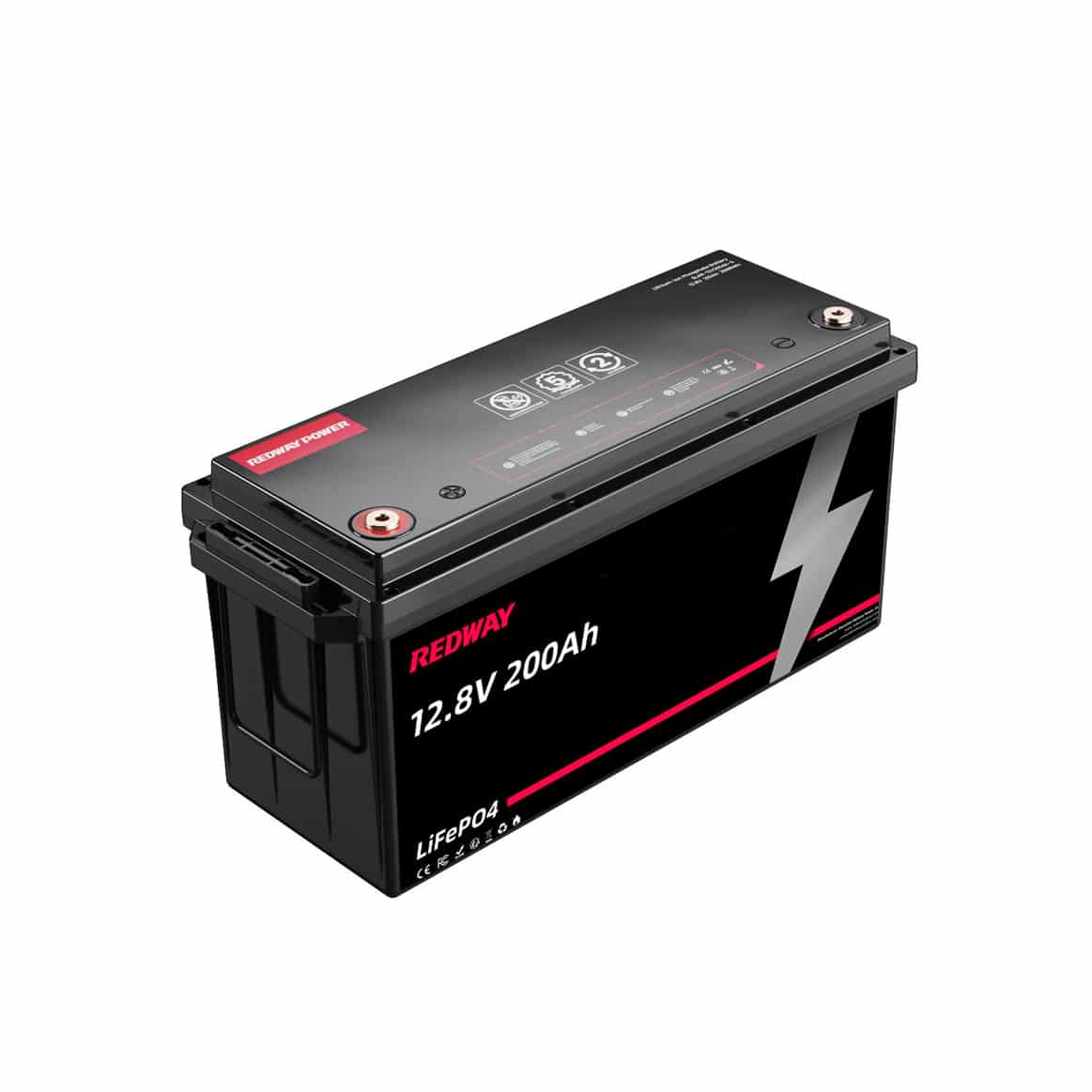Introduction
In today's world, where energy efficiency and reliability are paramount, the choice of battery technology plays a crucial role in various applications. Among the myriad of options available, the 12V 200Ah LiFePO4 battery stands out for its exceptional performance and versatility.

What is a 12V 200Ah LiFePO4 Battery?
A 12V 200Ah LiFePO4 battery is a rechargeable lithium iron phosphate battery with a nominal voltage of 12 volts and a capacity of 200 ampere-hours. Unlike traditional lead-acid batteries, LiFePO4 batteries utilize lithium iron phosphate as the cathode material, offering numerous advantages in terms of safety, longevity, and energy density.
Advantages of LiFePO4 Batteries
Enhanced Safety Features
One of the most significant advantages of LiFePO4 batteries is their inherent safety features. Unlike lithium-ion batteries, LiFePO4 batteries are less prone to thermal runaway and combustion, making them a safer choice for a wide range of applications.
Longer Lifespan
LiFePO4 batteries boast an impressive lifespan, capable of enduring thousands of charge-discharge cycles without significant degradation. This longevity translates to reduced maintenance costs and enhanced reliability, making them ideal for long-term use.
High Energy Density
Despite their compact size, LiFePO4 batteries offer high energy density, allowing them to store a considerable amount of energy in a relatively small footprint. This makes them suitable for applications where space is limited, such as electric vehicles and portable electronics.
Applications of 12V 200Ah LiFePO4 Batteries
The versatility of 12V 200Ah LiFePO4 batteries makes them well-suited for a wide range of applications, including:
Automotive Sector: Electric vehicles, hybrid vehicles, and start-stop systems.
Renewable Energy Systems: Solar energy storage, wind power systems, and off-grid applications.
Marine and RV Applications: Marine propulsion, onboard electronics, and recreational vehicles.
Factors to Consider When Choosing a 12V 200Ah LiFePO4 Battery
When selecting a 12V 200Ah LiFePO4 battery for your specific application, several factors should be taken into consideration, including:
Performance Requirements: Voltage stability, discharge rate, and temperature tolerance.
Durability and Reliability: Construction quality, warranty terms, and manufacturer reputation.
Budget Considerations: Initial investment, cost per cycle, and total cost of ownership.
Comparison with Other Battery Types
While lead-acid and lithium-ion batteries are the most common alternatives, LiFePO4 batteries offer distinct advantages:
Safety: LiFePO4 batteries are inherently safer than lithium-ion batteries due to their stable chemistry.
Lifespan: LiFePO4 batteries outperform lead-acid batteries in terms of cycle life and reliability.
Environmental Impact: LiFePO4 batteries are more environmentally friendly than lead-acid batteries, as they contain no toxic heavy metals.
Maintenance Tips for 12V 200Ah LiFePO4 Batteries
To maximize the lifespan and performance of your LiFePO4 battery, follow these maintenance tips:
Charging Practices: Use a compatible charger designed for LiFePO4 batteries and avoid overcharging or deep discharging.
Storage Guidelines: Store the battery in a cool, dry place away from direct sunlight and extreme temperatures.
Periodic Inspections: Regularly inspect the battery terminals for signs of corrosion and ensure proper ventilation around the battery.
Environmental Impact and Sustainability
LiFePO4 batteries are considered environmentally friendly due to their non-toxic chemistry and recyclability. Unlike lead-acid batteries, which contain hazardous materials like lead and sulfuric acid, LiFePO4 batteries pose minimal risk to the environment when disposed of properly.
Future Trends and Innovations
As demand for energy storage solutions continues to grow, ongoing research and development efforts are focused on enhancing the performance and efficiency of LiFePO4 batteries. Future innovations may include improved electrode materials, advanced battery management systems, and integration with smart grid technologies.
Case Studies
Real-world examples of successful implementation of 12V 200Ah LiFePO4 batteries include:
Electric Vehicles: Tesla Model S utilizes LiFePO4 batteries for long-range performance and durability.
Off-Grid Solar Systems: Remote communities and off-grid homes rely on LiFePO4 batteries for reliable power supply.
Marine Applications: Sailboats and yachts utilize LiFePO4 batteries for marine propulsion and onboard electronics.
Common Misconceptions About LiFePO4 Batteries
Despite their numerous advantages, LiFePO4 batteries are sometimes subject to misconceptions:
Limited Energy Density: While LiFePO4 batteries have lower energy density compared to lithium-ion batteries, they offer superior safety and longevity.
High Cost: While the initial investment may be higher than lead-acid batteries, the long-term cost savings justify the expense for many applications.
Complex Maintenance: LiFePO4 batteries require minimal maintenance compared to lead-acid batteries, thanks to their robust construction and stable chemistry.
Conclusion
In conclusion, the 12V 200Ah LiFePO4 battery represents a compelling choice for applications requiring high performance, reliability, and safety. With its advanced technology and numerous advantages over traditional battery types, LiFePO4 batteries are poised to play a pivotal role in shaping the future of energy storage.
FAQs
How long does a 12V 200Ah LiFePO4 battery last?
LiFePO4 batteries can last thousands of charge-discharge cycles, translating to several years of reliable service life under normal operating conditions.
Can I use LiFePO4 batteries in cold climates?
Yes, LiFePO4 batteries perform well in a wide range of temperatures, including cold climates, although extreme temperatures may affect their performance temporarily.
Are LiFePO4 batteries suitable for off-grid applications?
Absolutely, LiFePO4 batteries are an excellent choice for off-grid applications due to their long lifespan, high energy density, and resistance to deep discharges.
What safety measures should I take when handling LiFePO4 batteries?
When handling LiFePO4 batteries, avoid puncturing or short-circuiting the cells, and always use a compatible charger designed for LiFePO4 batteries to prevent overcharging or overheating.
Are LiFePO4 batteries compatible with existing charging systems?
Yes, most LiFePO4 batteries are compatible with standard charging systems, although it's essential to use a charger specifically designed for LiFePO4 chemistry to ensure optimal performance and safety.